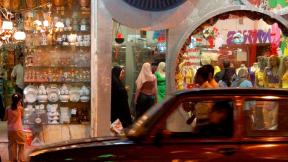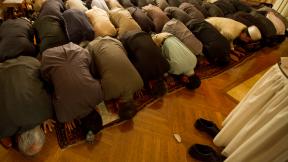
Ramadan is the month of Mercy. Surely Allah as Al-Rahman bestows His abundant benevolence, and as Al-Raheem His overflowing kindness upon the believers who fast with sincerity and pure intention during this month. As Al-Haleem, Allah is tolerant of our shortcomings as human beings as we strive to submit ourselves fully to Him. We know and try to understand the enormity of the mercy that comes from Allah during the month of Ramadan. We should also remind ourselves that as human beings we should be merciful to each other as well.
Optional good deeds
Muslims are encouraged to do good deeds throughout the year and through the whole of our lives. During Ramadan, the reward given to us by Allah is an extra mercy, demonstrating the extreme generosity we receive from our Creator.
We remind ourselves that good deeds are not just outward demonstrations of charity to others like volunteering at a food bank, recycling, or clearing trash, but we include kindness and thoughtfulness in our homes with our families. Here are some examples:
- Volunteering to help out with chores.
- Assisting a sibling (or parent) with homework.
- Being conscious of our noise levels if someone is studying, praying, or reciting the Quran.
- Obeying our parents and elders without resentment.
- Encouraging each other to increase our Ibadah (worship).
- Joining each other and making it easier to increase our efforts at Ibadah.
- Being mindful that the other members of our family are fasting and going out of our way not to disturb that fast.
Patience
Again, as a Muslim, Sabr or being patient is a very important and integral part of our lives. During Ramadan, we patiently wait to break fast each day. Patience however is more than just self-control, but also involves tolerance, poise and moderation. During Ramadan, we can embrace humility within ourselves as we interact with our family members. Here are some ways:
- Accepting that all members of our family are individuals who fast and endure the fast in their own way.
- Turning away from potential conflicts by restraining our tongue.
- Forgiving each other quickly when an offense is given or taken by mistake.
- Relieving each other of a hardship – this may be as simple as letting a family member who seems wiped out from the fast, get a little rest before Iftar.
- Being lenient, especially with our younger children and siblings, who do not yet fully understand the inner dimensions of fasting.
Sustenance increased
The ‘Fadil’ or Bounty of Allah, Al-Kareem, is not even truly imaginable by the human being. Allah has provided our existence and everything we need to make existence possible!
Iftar is a profound benefit and service, and we typically rush to break fast with others. Science reveals that the human body releases endorphins when we eat. These endorphins create an overall feeling of goodwill and happiness. Social scientists have examined the worldwide cultural practice of people eating together and discovered that participating in social eating makes people feel more at ease and trusting in their personal relationships. This is the profound condition that Allah, in His infinite wisdom as Al-Hakeem (The All-Wise) has given as part of the nature of the human being. And surely He is without error in the manner in which He has fashioned humanity. Eating together, especially when both are experiencing hunger, links and solidifies us as human beings. What greater unity is there than that of the family, and surely we should take every opportunity to strengthen our bonds in such ways:
- Making a point to go to the homes of our grandparents or elder family members and break fast them.
- Taking turns and preparing not only iftar, but Iftar, dinner and Suhoor.
- Reading or reciting Quran together with family members or for family members like for instance, a family member whose eyesight may have failed them or if we are more proficient in Quranic recitation.
- Assisting family members with their Fidyah (monetary compensation for those unable to fast) for those who may have health issues that prevent them from fasting. For example, this family member may be preparing food for the poor and may need help with preparation or delivery.
- Praying and making Dua together as a family as much as possible.








Add new comment